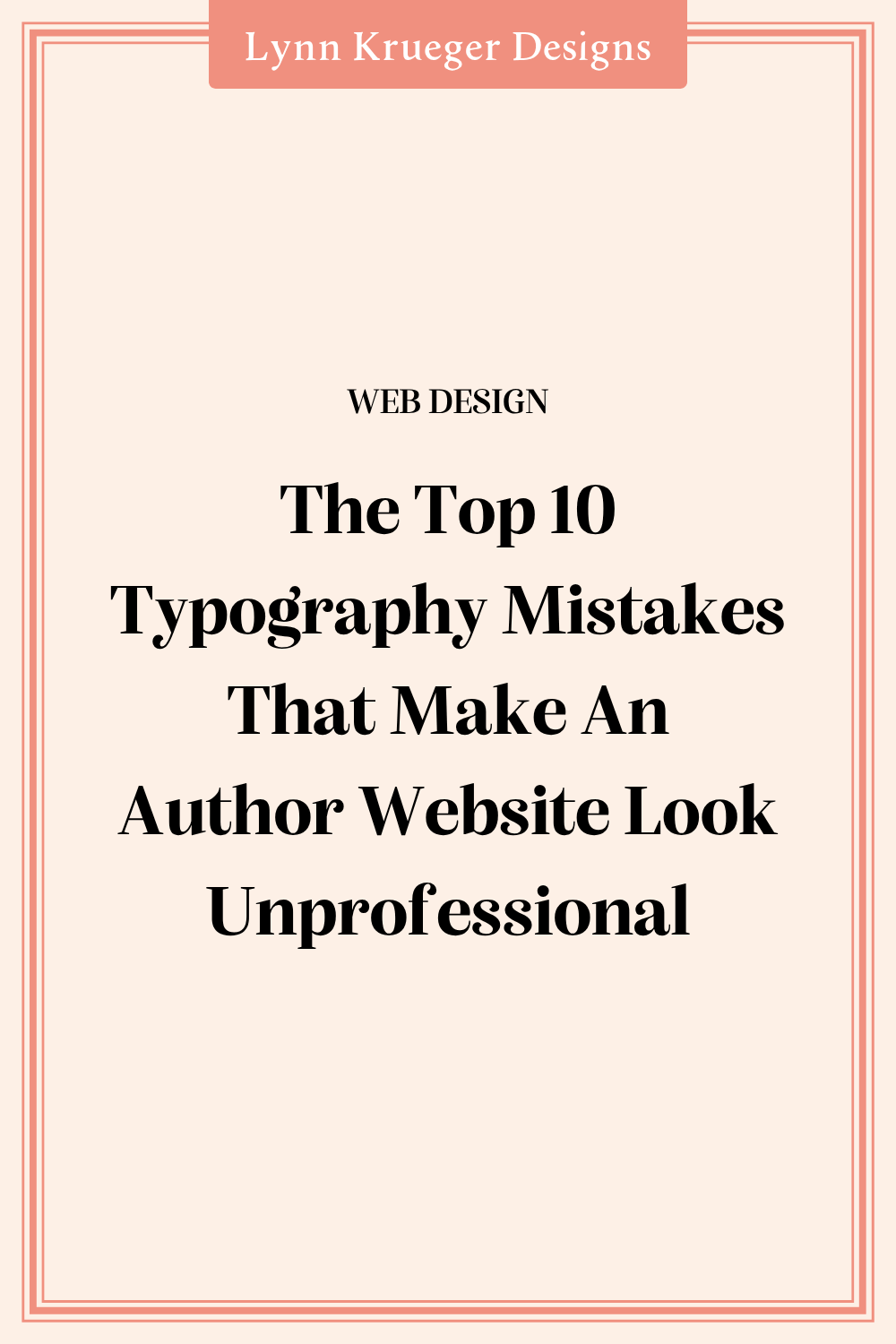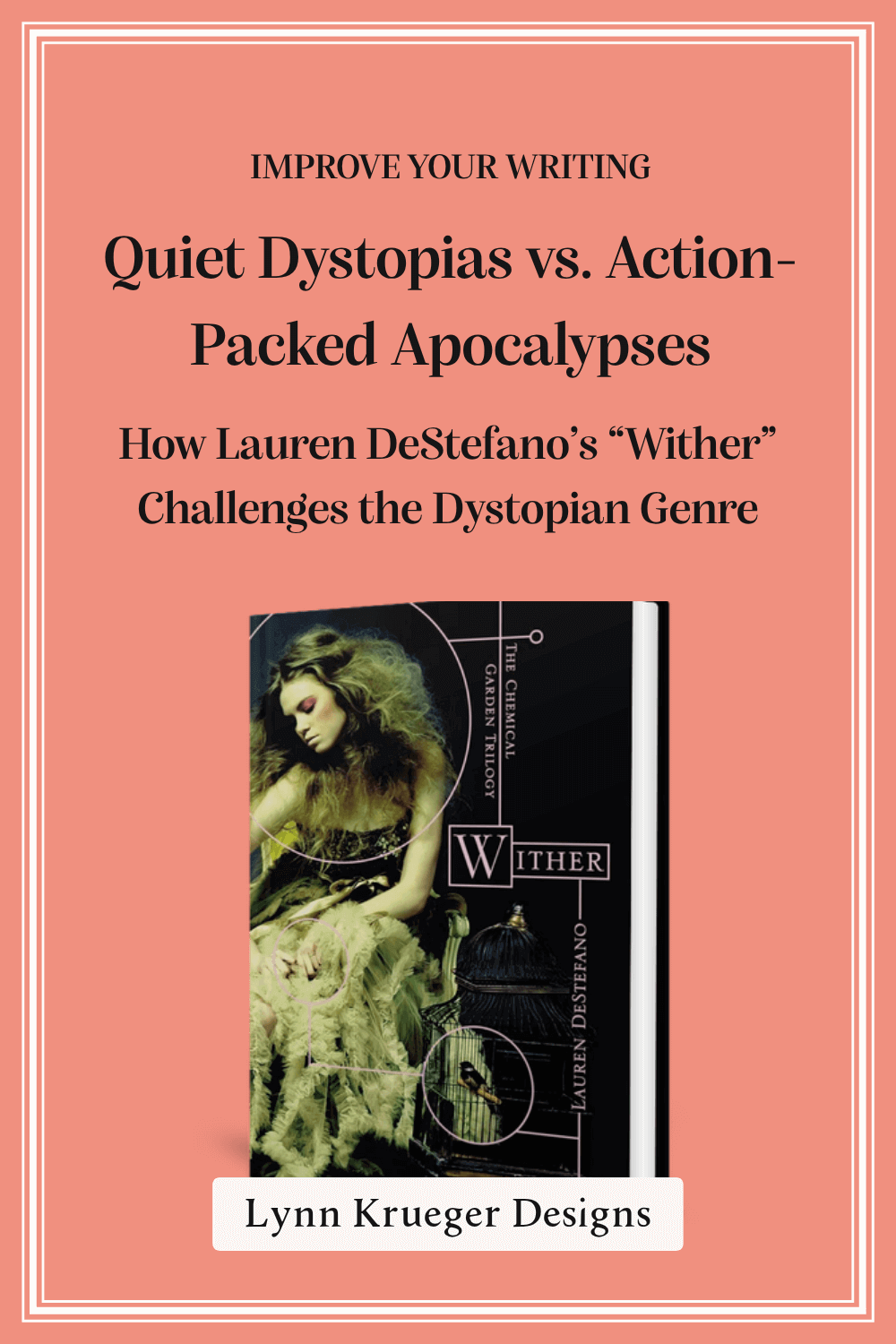Welcome to Lynn’s Design Blog
Author Tips Published Every Monday & Thursday
Read by Topic
Why Your Writing Process Needs Sacred Pauses
My friend used to be the queen of writing productivity hacks. She had apps that tracked her daily word count, spreadsheets that calculated her "words per minute" efficiency, and a color-coded calendar that scheduled her creative time down to fifteen-minute increments. She treated her writing process like a machine that needed optimal tuning to run at peak performance. Then she hit a wall. Not writer's block—something deeper.
Discover The Art of Authentic Advocacy
"Tempests and Slaughter" tackles slavery, abuse of power, and LGBTQ+ representation—heavy topics that could easily feel forced or preachy in the wrong hands. But Pierce has been seamlessly weaving social justice into her fantasy worlds for decades. How does she make it feel so natural?
The Top 10 Typography Mistakes That Make An Author Website Look Unprofessional
A literary agent lands on your website, ready to be impressed by your professionalism. Instead, they're immediately put off by typography choices that scream "amateur hour." Before they've even read about your latest manuscript, they've mentally moved on to the next author.
The World of Tamora Pierce: Why Authors Should Study Their Literary Heroes' Websites
And while reading "Tempests and Slaughter," I dove into Tamora Pierce's online presence and realized — there’s a masterclass in author branding hiding in plain sight on her site. But here's the thing—most authors are missing this goldmine of inspiration sitting right under their noses.
Quiet Dystopias vs. Action-Packed Apocalypses
Lauren DeStefano's Wither proves that some of the most chilling dystopias whisper instead of scream. Her debut novel divides readers precisely because it takes the quieter approach—atmospheric dread over explosive action, psychological horror over physical danger, character development over plot momentum.
The Power of Professional Resistance
While history tends to focus on the perpetrators of Nazi medical crimes, the stories of those who demonstrated moral courage deserve equal attention—not just because they maintained their professional integrity in impossible circumstances, but because their workplace resistance actually worked. Just as authors today must decide whether to bow to censorship or defend creative freedom, these medical heroes faced a choice between career safety and professional ethics.
How to Write a Gender-Flipped Retelling That Actually Works
Gender-flipped retellings are everywhere these days. Pick up any YA fantasy section and you'll find female King Arthurs, girl pirates, and warrior princesses reimagining classic tales. But here's the thing—a lot of them feel forced, gimmicky, or like the author just did a find-and-replace on pronouns and called it a day.
Let Them Question Your Hybrid Approach
Picture This: You're at a writing conference. That familiar buzz of excitement fills the hotel conference room as authors swap business cards and publishing war stories. You've just struck up a conversation with a fellow novelist, and she asks about your publishing journey. You light up—this is exactly the kind of conversation you'd hoped to have here.
The Author's Guide to Domain Names, Website Platforms, and Websites
The confusion between domain names, website platforms, and websites themselves is one of the biggest stumbling blocks authors face when building their online presence.
Here's the thing: you wouldn't start writing a novel without understanding the difference between a plot, a publisher, and a finished book.
Similarly, you shouldn't start building your author website without understanding these three fundamental components.
The Author's Burden: How Philippe Aziz Documented the Undocumentable
When French author Philippe Aziz sat down to write his four-volume series "Doctors of Death" in the 1970s, he faced a challenge that would daunt even the most seasoned writer: how do you document humanity's descent into medical barbarism without losing your reader—or your own sanity—in the process?
What is Typography and Why Is It Important For Author Websites?
Picture this: A potential reader discovers your book through a recommendation and immediately searches for your website. They land on your homepage and within three seconds—before they've even read a single word—they've formed a negative opinion about you as an author.
The culprit? Your typography.
Your Writing Career Needs Trickster Energy
After my last post about escaping the publishing grind, I received messages from authors asking the same question: "Okay, Lynn, I'm convinced the hustle culture is killing my creativity. But what's the alternative? How do I build a sustainable career without falling into the productivity trap?" The answer lies in what Tricia Hersey calls "trickster energy"—and it might just be the most powerful tool in your author arsenal.
The Publishing Grind is Not Your Friend
Picture this: It's 6 AM and you're reaching for your phone before your feet hit the floor. Instagram story posted? Check. Twitter engagement? Better respond to those mentions. Email newsletter draft? Still sitting in your inbox, taunting you. And you haven't even had coffee yet. You mentally run through today's writing goals while brushing your teeth, calculating whether you can squeeze in 2,000 words between your day job and that book marketing webinar you signed up for. Again. Sound familiar?
Essential Books Every Author Should Read
As someone who works with authors daily, I'm constantly asked: "What books should I be reading to improve my craft?"
The truth is, there's no one-size-fits-all answer, because your reading list should be as unique as your writing journey.
That's why I've created this living list of book recommendations tailored to specific author needs.
Let Them Judge Your Self-Publishing Choice
You're at a family barbecue, feeling proud because you just hit "publish" on your debut novel last week. Your aunt approaches with genuine curiosity and asks about your book. Your heart swells as you start to explain your story, the characters you've grown to love, the themes you've woven throughout. Then she asks where people can buy it. "Oh," she says, her expression shifting slightly. "So you self-published? You couldn't get a real publisher?"
The Let Them Theory: The Life-Changing Mindset Shift Every Author Needs
Picture this:
You've just received your first one-star review.
Your stomach drops as you read the harsh words criticizing everything from your plot holes to your character development.
You screenshot it and immediately send it to your critique partner, your spouse, your writing group.
You spend the next three hours crafting the perfect response in your head—one that explains your artistic choices, defends your characters, and maybe even educates this clearly misguided reader about what good literature actually looks like.
Your Stories Matter More Than You Think: Lessons from Jason Stanley’s “Erasing History”
"The goal of the fascist assault on education is to produce individuals who cannot think for themselves, who cannot question, who cannot challenge authority." - Jason Stanley, Erasing History
I've sat across from dozens of authors during strategy calls, and I've heard the same hesitant tone of voice more times than I can count.
The hesitation to take up space, to be loud, to tell their story.
Why Squarespace is the Perfect Platform for Authors
"Should I use WordPress? What about Wix? Or maybe I need a custom-coded site?"
Sound familiar? If you're an author trying to choose a website platform, you've probably asked yourself these questions. With so many options out there, it's easy to get overwhelmed.
But here's what I've learned from building custom author websites: Squarespace isn't just good for authors—it's perfect for them.
Two Ways of Seeing the World: Understanding Market vs. Gift Economy Through Robin Wall Kimmerer's Eyes
In "The Serviceberry: Abundance and Reciprocity in the Natural World," Kimmerer presents two radically different approaches to organizing our lives and communities: the market economy (which most of us know intimately) and the gift economy (which might sound foreign but is actually all around us).
The Power of the Name on the Cover
I just finished Ava Reid's A Study in Drowning, and I highly recommend this book. It’s dark and moody, suspenseful and poignant. But more than that, it mirrors a profound shift we’re seeing in today’s society.
























